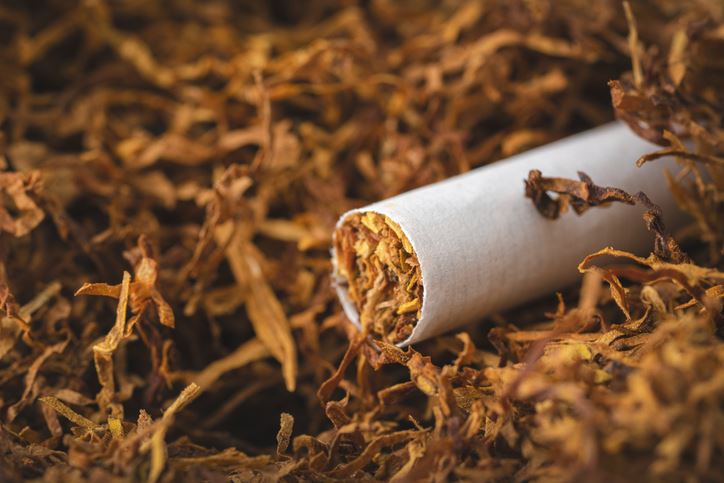Michigan Tobacco Tax And Licensing Requirements
Selling tobacco products in Michigan requires careful consideration of the tax and licensing rules the Department of Treasury enforces. Wholesalers and retailers that ignore these regulations can put themselves at risk of audit or inspection and be on the receiving end of harsh fines and penalties. Below is our guide to key aspects of the licensing and tax framework for tobacco products, e-cigarettes, and vapor products applicable to you so you can stay on top of your tax obligations to the Michigan state.
Who Is Subject to the Michigan Tobacco Tax Licensing Requirements?
The state of Michigan’s Tobacco Products Tax Act (TPTA) is the primary source of law that imposes excise taxes on tobacco product consumers. The same law also provides guidelines on licensing, stamping, collecting, and remitting tobacco taxes to the Department.
Generally, a person must obtain a State of Michigan Tobacco Products Tax license to purchase, possess, obtain for resale, or sell tobacco products in Michigan as a:
- Manufacturer
- Wholesaler
- Secondary wholesaler
- Unclassified acquirer
- Vending machine operator
- Transportation company
- Transporter
It is important to note that if you operate in more than one of the above capacities, you are required to get a license for each type of activity your business does.
License Types and Fees That Apply
To obtain a Michigan tobacco license, you need to apply and pay the accompanying fees. This is what allows a business to legally sell tobacco in the state. Below is a brief description of the license types and their accompanying fees.
- Manufacturer: requires paying $100 for a license.
- Wholesaler: Can purchase tobacco products that are either TPTA tax unpaid or TPTA tax paid. The license fee is $100.
- Secondary wholesaler: For businesses that purchases OTP (Non-cigarette Tobacco Products) affixed as TPTA tax paid from either a wholesaler that has a Michigan license or an unclassified acquirer and plans to sell tobacco products to other businesses for resale. The license fee is $25.
- Unclassified acquirer: imports or acquires TPTA tax unpaid OTP from a different source that is not a wholesaler or secondary wholesaler to consume, sell to consumers, or sell to other businesses intending to resell. You can also purchase TPTA tax-paid tobacco products to be sold at retail price. An Unclassified Acquirer license for OTP is $10.
- Vending machine operator: Purchases OTP that is TPTA tax paid from a TPTA-licensed secondary wholesaler, wholesaler, or unclassified acquirer and who sells tobacco products to consumers using one or more vending machines. One vending machine license costs $25 plus $6.25 for each additional vending machine.
- Transportation company - for a company, the license fee is $5.
- Transporter - the fee for a license is $25 plus a permit for each load which costs $1.
Application Process for a Tobacco License
The Michigan Department of Treasury provides guidance on applying for a license through Form 337 Tobacco Tax License Application Instructions, which contains the steps and documentation required to properly apply for a Michigan tobacco license.
The Department also provides a link that allows you to apply for a license electronically via the Michigan Motor Fuel and Tobacco System (MiMATS). Some of the noteworthy requirements that applicants need to meet for approval from the Department include the following:
- You need a minimum net worth of $25,000.
- You are the owner or have an executed lease for a secure nonresidential facility that is for receiving and distributing OTPs and doing business. Furthermore, you are also required to identify any business you're operating in addition to the facility.
- You are a U.S. citizen or qualify to be employed in the U.S. as a non-citizen.
Keep in mind, if you're based in more than one location, then you need to apply for a license for each location.
Renewal of License
Michigan tobacco licenses are valid for one year, which begins July 1 and ends on June 30. Your business must submit a renewal application before June 30 using the same systems as a new application. Businesses that fail to timely renew their tobacco license won’t be able to operate their tobacco-related activities until the Department issues them a new license, which requires a new application.
Licensing for E-Cigarettes and Vapor Products
Michigan is one of the several states that doesn’t have an excise tax on e-cigarettes and vapor products. In general, a retailer doesn't have to apply for a separate license or permit to sell e-cigarettes and vapor products. However, there are underlying state laws such as the Michigan Public Act 17 of 2019 and Michigan Public Act 18 of 2019 that provide guidelines on the use and sale of vapors and e-cigarettes. Specifically, the state requires these liquid nicotine containers to meet minimum safety standards and requires retailers to keep vapor products stored in a locked case or behind the counter.
While the state does not have an excise tax on vapor products, its legislature has introduced legislation on the subject in past sessions—a sign that new taxes could apply in the future. For example, in June 2020, the Michigan Senate passed SB 781 on a 33-5 vote that would have imposed an 18% excise tax on the wholesale price of vapor products.
Compliance with Michigan Tobacco Taxes
Tobacco Tax Rates
Other tobacco products such as cigars, smokeless tobacco, and non-cigarette smoking tobacco are levied at a tax rate of 32% of the wholesale price. For premium cigars, cigars going at a wholesale cost of $1.5625 or more are taxed at a rate of 50 cents per cigar, while cigars at a wholesale cost of less than $1.5625 attract a tax of 32% on the wholesale price.
Tobacco Products Tax Collection, Remittance, and Filing
If you're a wholesaler or unclassified acquirer, you're subject to collect and remit tobacco excise taxes as well as file Tobacco Products Tax returns with the Michigan Department of Treasury. Wholesalers must pay the tax upon sale to a retailer or secondary wholesaler and unclassified acquirers must pay the tax after purchase or import of the tobacco product. The Tobacco Products Tax return must be filed and submitted to the Treasury on or before the 20th of every month through the MiMATS.
Penalties for Late Filing or Payment
Failure to timely file a tobacco tax return could lead to penalties that range from 5 to 25 percent of the tax due, depending on how many months late the return is. Late payments for tax due will trigger penalties of 0.167 percent of the tax per day, with a max penalty of 25 percent. Interest could also accrue on unpaid tax based on current rates set by the Department.
Additional Information
Inspection of License
If you're licensed to handle tobacco products, you should expect an administrative inspection by the state department in your place of business during normal operating hours. The inspection begins with an agent providing their identity and business card. They should state the purpose of the visit and the procedures that will apply. Potential reasons for an inspection include:
- Confirmation of valid TPTA license and sales tax license,
- Review the of past 4-year tobacco product invoices,
- Identify business contact person,
- Inspect all tobacco products for proper tax-paid stamps and other compliance, or
- Proof of signage to show prohibition of sale to minors.
To further learn about everything to do with the Michigan tobacco tax, the Michigan Department of Treasury offers the Tobacco Tax Information Guide.
Get Help With Michigan Tobacco Tax Laws Compliance
Following through with tobacco tax laws in the state of Michigan can be daunting for busy license holders. While having a general idea of your tax obligations can save you headaches, it's easy to miss complex details of your compliance obligations, including those from newly passed or amended tobacco laws. Our tobacco tax experts can help you effectively navigate any relevant Michigan tobacco tax and licensing requirements as well as interactions with the Michigan Treasury Department during an audit, inspection, or assessment.
Contact Tobacco Tax Refund Inc. for a consultation on your Michigan tobacco tax or licensing issues.






.2409241359572.jpg)